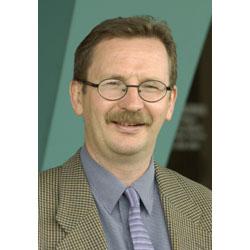Lonely days and nights for Aussies
Published on 01 May, 2003
More than a third of Australians are potentially lonely, according to a survey of Central Queenslanders by Central Queensland University.
The Annual Central Queensland Omnibus Survey (ACQOS) found that more than a third of Central Queenslanders are lonely. If generalised, this would represent about six million lonely people in Australia.
 35.7% of those surveyed in the ACQOS, last year, reported being lonely to some degree.
35.7% of those surveyed in the ACQOS, last year, reported being lonely to some degree.
“It was shocking to find so many of the 1200 respondents felt that way,” said developer of the survey, Central Queensland University’s Foundational Professor of Contemporary Nursing William Lauder.
Professor Lauder said victims of domestic violence were most affected by loneliness.
“The survey found that those who were most affected by loneliness were often single, victims of domestic violence, people with many children under-18 who stayed at home, and those not employed in paid work,” he said. “Of these, domestic violence victims were nearly three times more likely to be lonely.
Loneliness has been associated with an increased incidence of a wide range of physical and mental health problems.
“Loneliness has been linked to increased rates of many illnesses including mental health problems, suicide and heart disease. Loneliness is a very common problem and should be seen as a major public health issue.
Professor Lauder believes the detection, prevention and amelioration of loneliness is an important public health issue for nurses.
“Nurses, through a community capacity building framework, have a major role to play in the prevention of loneliness.
As a teacher of student nurses in Rockhampton, Professor Lauder explains prevention and early detection strategies have much in common with community capacity building strategies and it is in these areas where nurses have been recognised by the World Health Organisation as being the professional group who can exert most influence.
Professor Lauder was previously part of the project team which prepared the first Family Health Nurses in Europe. “It is new roles such as this which will place nurses at the forefront of community and public health initiatives that can tackle loneliness and other related problems.
But the problem also needs to be addressed by the entire community. “We need to bring communities together, develop community structures and networks and coordinate voluntary work. This needs to be done at a community level.
CQU is conducting research into health issues such as loneliness and is currently looking further into loneliness prevention strategies.

